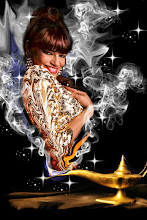-->
-->
HEAD GAMES: MENTAL PREPARATION FOR DANCE
Ever had one of those moments where you’re
about to dance and your mind totally blacks out? In
rehearsal, you’re not sure if you remember the choreography that you’ve known
for ages. Or maybe you’re in the wings
waiting to go on and can’t even recall how the song you chose goes? The panic is indescribable and very real…until
the music comes up. Then, as if by
magic, everything is ok.
As dancers, our bodies know exactly what to
do when the music starts because it’s ingrained in our muscle memory. It doesn’t matter whether we’re taking a
class, teaching a class, or stepping onto the stage, our bodies understand why
we are there and what we need to do. The only problem is, our minds don’t always
get the memo!
Or maybe you have extreme stage fright or are
feeling unmotivated. Perhaps you feel like you’re falling behind in class even
though you work as hard as you can, or that you’ve hit a plateau and are stuck
in a personal rut.
The reason all of these things come up is
because we don’t train our minds to perform in the same the way we train our
bodies.
Intellectual preparation for dance is not
something that most instructors teach-or even address- in their classes. Dancing, of course, is a physical activity.
But in order for a dancer to excel, there needs to be mental and emotional
technique in place, too!
Physically, we’ve learned to dance through
repetition by constant drilling or rehearsing. Through repeating and perfecting
technique, combinations or choreography sequences, we unconsciously merge the
mental memory of those actions with our motor control skills, so we barely need
to think about what we’re doing. This is why we can perform every day tasks
with little or no thought, or why we can go ten years without riding a bicycle,
then hop on one and ride away as though we’d never stopped for an entire
decade!
Mental preparation for dancing is hugely
important, because it actually helps your brain to stay focused intellectually on
what you are doing physically. It also helps you to get emotionally “ready” for
what dancing onstage, in rehearsal or a class.
Here are some ideas that ought to help you get
mentally prepared for dancing.
Before you enter a studio for rehearsal or
class, Focus on what you’re about to
do. This means completely clearing your
mind of any non-dance clutter that could interfere with what you’re about to
do. If possible, arrive a little bit
early, and start warming up your own. The warm-up will prepare you physically,
but it’ll also help you to shift gears, providing a smooth transition into your
dance headspace.
If you tend towards stage
fright, as you warm up for class or rehearsal, take note of your muscles, where
they are tight and where they’re loose.
As you work each muscle, think or say these cue words: Loose and Tight. If your
shoulders feel like steel, think “tight”, as they loosen up, acknowledge that they are
now feeling supple by saying or thinking “loose”. This might seem strange, but
if you make this a regular part of your warm up, it will become a habit, the
same as your muscle memory. When we get
stressed or nervous- like in an episode of stage fright- many of our muscles automatically clench up. If you’ve taken the time to train your mind
to be aware of this, when you’re at a show, audition or competition and experiencing
stage fright, you can put this concept into play and your muscles will co-operate
by limbering up and relaxing. Also, remind
yourself to Breathe. Often when we concentrate, we unconsciously
hold our breath. This can make your
dancing look stilted cause it impedes flow. If you’re nervous or anxious
before a performance, taking a few deep, even, slow breaths will calm your
jitters.
During Tech Rehearsal especially, stay focused. Teching is a long and
sometimes boring process, but if you don’t pay strict attention to what you’re
doing, the odds are against you for having a quality show. As you wait for your turn onstage, watch the
other performers doing their tech, and take note of where the lights are the
hottest and where the stage is dark- this will save valuable time when you’re onstage for your own tech.
If you’re working in a venue where
there isn’t a tech rehearsal, scope out the stage or performance area
thoroughly. You’ll want to look for
lighting, but also other things, like a uneven floor surfaces and possible
areas of danger, such as cords, musical equipment or sound monitors on the
stage. Also look for the best places to
enter and exit the stage smoothly.
Observation is
a powerful tool. It’s something you can do with your eyes in class, and with your
mind’s eye before a performance. In
a class or workshop, watch the instructor demonstrate combinations or
choreography before you try to
perform it. This is hugely important, because your brain will then have a
visual frame of reference when it comes time for you to act physically. You
know how everyone says that little kids absorb everything like a sponge? That’s
literally what they’re doing! They
simply sit back to observe and absorb, allowing
the all the information soak into their brains completely before attempting to
do what the adults around them do. Watch your instructor run whatever it is
you’re learning before you jump right
in and start trying the moves yourself. At first this may seem counter
intuitive, but believe me, it’ll make a huge difference.
For Performance Preparation, we warm up and run our number, but often don’t
address the mental and emotional aspects of our dance. On the evenings leading up to
a show, go over the choreography in your head just before you fall asleep.
Envision yourself dancing to it onstage and excelling at it. Connect to the
character you’re portraying; think about their motivations. If you’re not going
into character, but just dancing as YOU, imagine the lights on your skin, the
way your costumes feels, and picture yourself looking out at the appreciative crowd as you
glide across the stage.
Research
has proved that going over the movements mentally will help to ingrain them
into your psyche as well as your
muscle memory. It’s the same for your character work- your pre-sleep “fantasy”
will allow you to connect emotionally to your characater and the music as well.
Once you’re backstage, it’s a
given that everyone’s out in the hallway with their iPods on, dancing full
out. Instead of joining them, try
avoiding the hallway (it’s pretty crowed anyway!) and find a quite corner to
get into your zone. You’ll notice that from the previous nights you’ve spent
running your number before sleeping, that your connection will now be full and
effortless. Run the number in your imagination
a few times, both with and without music. This quiet time will center you and allow you to re-familiarize
yourself with your piece in a calm, serene way, so you can really own it once you get onstage.
Positive Self Talk is something we humans-let alone dancers- don’t
engage in nearly enough. We’re constantly judging ourselves, and often the “judging
panel” can get awfully vicious. We’re
too fat, too skinny, too old, too dark skinned or white as a ghost. Our noses
are too large, our eyes are too small, our legs are too thick, too thin, or
they don’t have enough muscle tone. Oh
yeah, and we can’t dance: our technique sucks, we can’t retain choreography, and
we’ll never be able to master certain props.
Stop that right now!
Stop that right now!
Anytime you have a negative thought about your
body, your technique, your learning curve- whatever- you’re literally wiring your brain to believe that it’s true. Would you be this blunt or mean
with a friend? It’s highly doubtful. So
whenever a negative thought rears it’s ugly head, take a moment to assess
it. Be logical and rational: is what
you’re saying actually a fact? Are you devaluing yourself? Why? Is this coming
from a moment of exasperation? Would anybody else think this about you? More
importantly, would you actually talk like this to a family member, friend or
another dancer? No, you wouldn't. We all have our moments
of self-doubt, but constantly putting yourself down is emotional abuse. If someone else spoke to you like this, you’d
probably cut them out of your life!
Change the tone of your inner voice from
critic to cheerleader. You can’t constantly degrade yourself and then expect to
perform to your best capabilities. Do
whatever you can to be gentle with yourself without allowing mediocrity. Acknowledge your weak points, but give yourself
credit for trying… and then try harder. Be constructive in your self-critique, not
destructive. If you feel like making affirmations out loud or leaving encouraging
notes around the house for yourself, then by all means go for it, but just start
focusing on urging yourself to excel. Executives do it, athletes do it, actors
do it… and they do it cause it works. Try it.
For dancers, there’s almost nothing as
important as getting enough Sleep,
unless it’s Nutrition. Without
sufficient rest and fuel, your body cannot perform to its best ability…and the same goes for your brain! These days, eating and sleeping
well seems like a tall order. We’re always rushing around, focused on getting
everything done or being distracted by calls, texts and social media. After a great show or inspiring class,
sure, we’re all jacked up. But there’s
ten million other things that happen every day, and they sometimes prevent us from eating nutritious food or
getting quality slumber.
Make conscious choices about
what you’re putting into your mouth, and prepare healthy snacks to bring to
gigs and classes. Put your damn phone down, get off Facebook, and get into the
groove of relaxing before going to bed.
We need sleep to keep our
brains alert and stay on top of our game. With poor sleeping habits, your
dancing will suffer. Your memory disintegrates and you won't be able to retain
anything you learned in class or practiced at rehearsal. You’ll be so tired that you won’t get those
flashes of creative brilliance while you're building a performance. If you’re
running on empty, you also might get cranky and emotional, which can potentially
lead to diva-like behavior that’ll alienate those you work with- including show
producers...and you want to be doing more gigs, right? Show and festival orgamizers hire performers who
are easy to work with and behave professionally, not those prone to flakiness or temper tantrums. Be vigilant about getting your
rest and it’ll make you a better dancer- and better to work with all around.
Last but not least, before
you take the stage, remind yourself to Relax
and to Believe In Yourself. Whether you’re a newbie at your first
performance or a seasoned pro, remind yourself that you’ve been working towards
your goals for a long time, and right now
is when all those endless hours of training and striving are about to pay
off. You can do it!
#
Wanna
get yourself fully prepared for the
stage physically and mentally?
Dangerous Beauties’
Wicked Drills And Elegant
Technique covers everything
from technique, combinations and conditioning to acting excercises, breath
work and stage makeup.
\
Order this 2-disc
set and have it autographed here:
Watch the Dangerous Beauties DVD trailer here:












